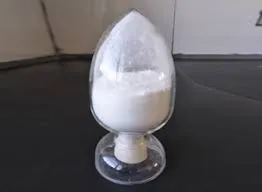Borehole Water Treatment Chemicals Ensuring Safe Drinking Water
Borehole water, often sourced from underground aquifers, is a vital resource for many communities, especially in regions where surface water may be scarce or contaminated. However, this water can sometimes contain harmful impurities and contaminants, necessitating effective treatment to ensure its safety for human consumption. This is where borehole water treatment chemicals come into play. This article explores the types of chemicals used in the treatment process, their roles, and the importance of proper treatment methods.
Understanding Borehole Water Quality
Boreholes can yield water with a variety of contaminants, including microbes, heavy metals, minerals, and organic compounds. Common contaminants such as nitrates, arsenic, and bacteria can pose serious health risks if left untreated. Therefore, assessing the quality of borehole water is essential before consumption. Water testing laboratories can help determine the specific contaminants present, guiding the selection of appropriate treatment chemicals.
Key Chemicals Used in Treatment
1. Chlorine Chlorine is one of the most widely used disinfectants in water treatment. Its primary function is to eliminate bacteria and other pathogens that can cause waterborne diseases. Chlorination can take several forms, including gas, liquid, or solid formulations, such as calcium hypochlorite. It's crucial to monitor chlorine levels closely, as excessive concentrations can lead to adverse health effects and unpleasant tastes and odors.
2. Coagulants Coagulation is a vital process in water treatment, where coagulants such as aluminum sulfate (alum) or ferric chloride are added to facilitate the aggregation of suspended particles. This process helps in removing turbidity from the water, making it clearer and more palatable. Coagulation is particularly effective in dealing with fine particles that cannot settle out on their own.
3. Flocculants Often used in conjunction with coagulants, flocculants help further consolidate the flock formed during coagulation. Synthetic organic polymers like polyacrylamide are commonly utilized to enhance the process, allowing for faster and more efficient removal of impurities.
borehole water treatment chemicals

4. pH Adjusters The acidity or alkalinity of water can significantly impact the effectiveness of disinfection and the solubility of certain contaminants. Chemicals such as sodium hydroxide (caustic soda) or hydrochloric acid are used to adjust the pH to optimal levels for treatment processes. Maintaining a balanced pH is essential for both the efficacy of disinfectants and the overall safety of the water.
5. Oxidants Oxidizing agents like potassium permanganate are used to oxidize iron, manganese, and other soluble compounds, facilitating their removal through filtration. This step is particularly important when dealing with water that has high concentrations of these minerals, which can cause staining and other aesthetic issues.
6. Antiscalants and Antifoams In cases where scaling or foaming may occur during the treatment process, antiscalants and antifoaming agents are sometimes added. These chemicals help to prevent the buildup of scale in pipes and equipment, ensuring efficient operation of the water treatment system.
Importance of Treatment
Proper treatment of borehole water is crucial for several reasons. Firstly, it protects public health by removing harmful contaminants that could lead to disease outbreaks. Secondly, treated water meets safety standards set by health authorities, ensuring compliance with regulations. Lastly, effective treatment can enhance the aesthetic quality of water, making it more appealing to consumers.
In addition, the use of appropriate treatment chemicals can have a significant impact on the longevity and performance of water supply systems. By preventing corrosion and minimizing scaling, these chemicals help maintain infrastructure and reduce maintenance costs.
Conclusion
The treatment of borehole water using various chemicals is essential for providing safe and clean drinking water. Understanding the specific needs of the water source and selecting the right treatment chemicals based on thorough testing is key to ensuring water quality. As communities increasingly rely on borehole water, the importance of effective treatment cannot be overstated—protecting public health, preserving resources, and enhancing the quality of life for countless individuals. Investing in appropriate water treatment solutions is an investment in a healthier, safer future.

